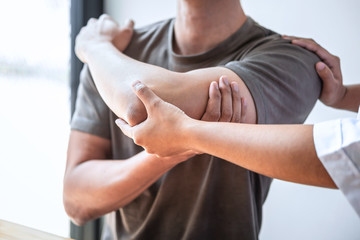
Sleep and recovery
We all know sleep feels good, but did you know it’s also a critical part of how your body repairs and protects itself? Whether you’re an athlete, a weekend warrior, or just someone trying to stay active, sleep plays a vital role in keeping your body strong and injury-free. Let’s take a closer look at the science behind sleep and recovery, and how you can use it to your advantage.
Why Sleep Matters for Recovery
Sleep isn’t just downtime—it’s when your body gets to work on repairing and rebuilding. Here’s what’s happening behind the scenes:
- Muscle Repair and Growth
During deep sleep, your pituitary gland releases growth hormone (GH). This hormone is essential for repairing damaged muscle tissues, rebuilding collagen, and strengthening bones. If you’ve been pushing yourself at the gym or recovering from an injury, this is when your body does most of the heavy lifting to heal. Without enough deep sleep, this repair process is disrupted, leaving your muscles weaker and more prone to injury. - Reduced Inflammation
Sleep helps regulate your body’s inflammatory response. During sleep, your body produces cytokines, proteins that help control inflammation and promote healing. Chronic sleep deprivation, on the other hand, increases the production of pro-inflammatory molecules like C-reactive protein (CRP). This heightened inflammation can slow down recovery, increase pain, and make you more susceptible to overuse injuries like tendinitis or stress fractures. - Better Focus and Coordination
Sleep is crucial for cognitive function, including focus, reaction time, and coordination. When you’re sleep-deprived, the part of your brain responsible for decision-making and motor control doesn’t function as well. This can lead to poor form during exercise, slower reaction times, and a higher risk of accidents or injuries, especially in sports or activities that require precision.
Tips for Better Sleep
Want to optimise your sleep for better recovery and injury prevention? Here’s some helpful tips:
- Stick to a Routine
Your body thrives on consistency. Going to bed and waking up at the same time every day helps regulate your circadian rhythm, the internal clock that controls your sleep-wake cycle. This ensures you get enough restorative deep sleep and REM sleep, both of which are crucial for recovery. - Create a Relaxing Sleep Environment
Your bedroom should be a sanctuary for sleep. Keep it cool (around 18-20°C), dark, and quiet. Exposure to light, especially blue light from screens, can suppress melatonin production, the hormone that signals your body it’s time to sleep. Consider using blackout curtains and avoiding screens at least an hour before bed. - Wind Down Before Bed
Engage in calming activities like reading, gentle stretching, or meditation to activate your parasympathetic nervous system (the “rest and digest” system). This helps lower cortisol levels and prepares your body for sleep. - Watch What You Eat and Drink
Avoid heavy meals, caffeine, and alcohol close to bedtime. Caffeine blocks adenosine, a chemical that promotes sleepiness, while alcohol disrupts your sleep cycle, reducing the amount of restorative deep sleep you get. - Move During the Day
Regular exercise improves sleep quality by reducing stress and promoting the release of endorphins. However, try to finish intense workouts at least 2-3 hours before bed to give your body time to cool down and relax.
How Physiotherapy Can Help
If pain or stiffness is interfering with your sleep, a physiotherapist can help address the root cause. For example, chronic back pain might be due to poor posture or muscle imbalances, while joint stiffness could be a sign of overuse or improper movement patterns. A physio can create a personalised plan to improve your mobility, reduce pain, and help you sleep better. They might also recommend specific stretches or exercises to do before bed to relax tight muscles and improve circulation.
Sleep Well, Stay Active
Sleep isn’t just a luxury—it’s a cornerstone of good health and injury prevention. By prioritising rest and recovery, you’re giving your body the tools it needs to repair, rebuild, and perform at its best.
If pain or discomfort is keeping you up at night, don’t hesitate to reach out to Pivotal Motion Physiotherapy. Our team will be able to discuss with you in more depth on how we can help you. Book online or call us on 3352 5116.

